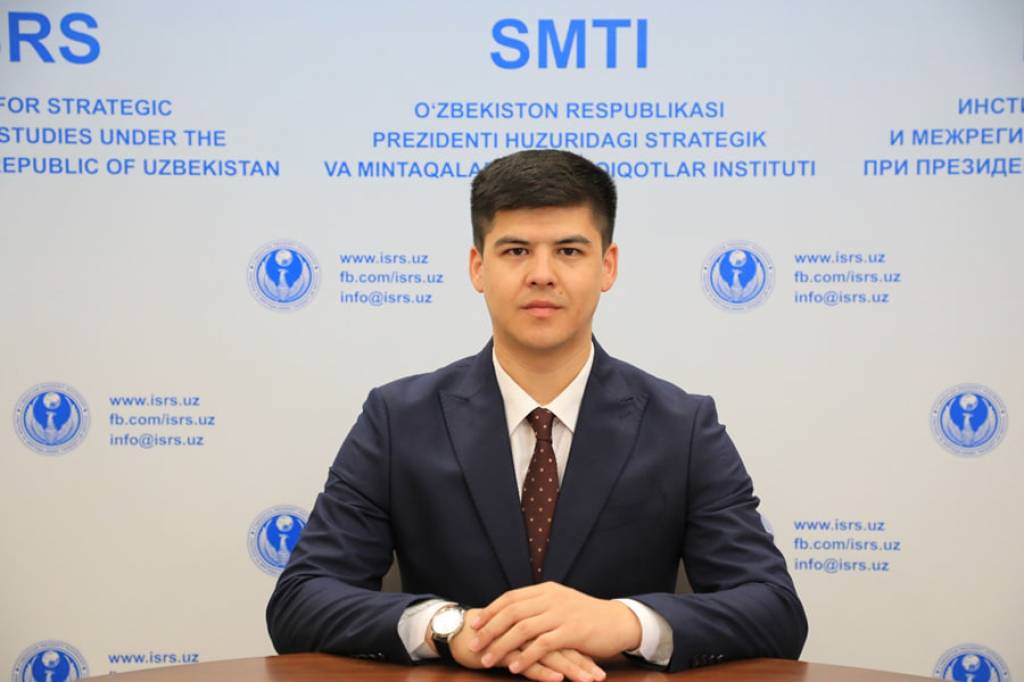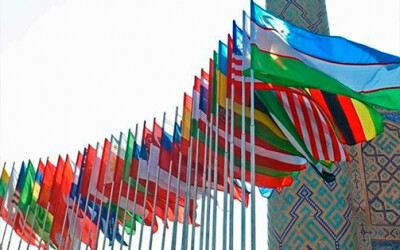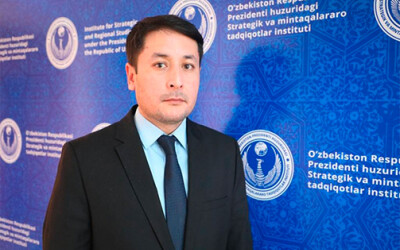Uzbekistan is developing a program “From Poverty to Prosperity”

In recent years, Uzbekistan has achieved remarkable success in reducing poverty through a targeted government policy focused on improving the living conditions of its citizens in a comprehensive manner. The country’s policy involves a strategic combination of economic reforms, social support and improvements in public services.
It is important to note that the message of the President of Uzbekistan, Shavkat Mirziyoyev, of 24 January 2000, in which poverty was for the first time officially recognised as a critical problem for the country, marked the beginning of Uzbekistan’s practical actions to address it. In his message, the Head of State stressed the need for a comprehensive economic and social policy, including the stimulation of entrepreneurial activity, the creation of new jobs and the mobilisation of the potential of the population.
These measures have become the basis of Uzbekistan’s national strategy to reduce poverty and improve the living conditions of its citizens, and have already begun to yield significant results.
Thus, in its report, the World Bank notes that the poverty rate in Uzbekistan will be halved between 2015 and 2022. According to the international poverty line used for upper-middle-income countries, the poverty rate in Uzbekistan will fall from 36% in 2015 to 17,3% in 2022, lifting 5,1 million people out of poverty. The rate of reduction was faster than in the rest of Central Asia and in Europe.
Over the past three years, the country has improved the lives of 3 million vulnerable people and reduced the poverty rate from 17% to 11% by 2023. The plan is to reduce the rate to 9% this year and halve it by 2030.
In 2021-2023, 1,2 million people in rural areas and 400,000 people in urban areas were lifted out of poverty.
In this context, it is advisable to highlight the specifics of the implementation of the priorities of the state policy on poverty reduction in Uzbekistan.
Firstly, key objectives and measures for poverty reduction and social protection are firmly anchored in legislation and government policies. In particular, the National Agency for Social Protection and the ‘Inson’ social service centres have been established to carry out these activities. As a result, more than 2,3 million needy families, women, the elderly and persons with disabilities have benefited from guaranteed social protection, representing a fourfold increase compared to 2017.
In addition, entirely novel organisational and legal mechanisms were initiated, including the ‘Iron Notebook’, the ‘Women’s Notebook’, the ‘Youth Notebook’, and the ‘Notebooks of Mercy’.
The new version of the Constitution stipulates that the State must take measures to organise employment, provide social support and reduce poverty. Thus, article 43 states that the State is responsible for ensuring the employment of citizens, protecting them from unemployment, taking measures to reduce poverty and organising and encouraging the vocational training and retraining of citizens. The updated Constitution clearly defines the country as a ‘social State‘.
Furthermore, the Strategy ‘Uzbekistan – 2030’ outlines the objective of halving the poverty rate by 2026 in comparison to 2022, and of increasing the incomes of 4,5 million individuals at risk of falling into poverty and training 500,000 qualified specialists on the basis of social partnership by 2030.
Secondly, the government employs a comprehensive strategy for poverty alleviation, investing significantly in social protection and infrastructure. In particular, in 2023, 12,3 trillion UZS was allocated for social assistance programmes, 35 trillion UZS for soft loans aimed at developing local entrepreneurship, and 7 trillion UZS for subsidies for the development of projects in poverty-stricken regions, especially in makhallas.
These financial incentives have had a direct impact on the reduction of poverty, providing both immediate relief and long-term economic opportunities for millions of people.
In addition, one of the government’s most significant accomplishments has been the expansion of social protection coverage. To illustrate, pensions and social benefits have been augmented by
1,5 times, which has had a direct impact on low-income groups. Furthermore, the government has prioritised the development of infrastructure, allocating a sum of 120 trillion UZS to the advancement of crucial sectors such as healthcare, education and transportation.
Thirdly, the introduction of the position of ‘hokim’s assistant’ in the regions has been identified as a key factor in the reduction of poverty. Initiated by the Head of State, the appointment of a khokim’s assistant in each makhalla has been a key policy since 2022. This initiative has been aimed at improving socio-economic conditions in the makhallas, providing paid employment and stimulating entrepreneurship.
In the present day, in upwards of 9,400 makhallas throughout the country, economists who previously held managerial roles within organisations belonging to the economic complex are currently employed as hokim’s assistants.
It is noteworthy that since the inception of this institution, by the end of 2023, a total of 5,1 million individuals have been employed in permanent and seasonal roles, with 3,9 million registered as self-employed.
Fourthly, the creation of employment opportunities and the advancement of skills represent a pivotal mechanism of Uzbekistan’s poverty reduction policy. Despite the existence of 250,000 job openings across various sectors, 35% of low-income households lack the requisite skills to fulfill these roles. This deficit of requisite skills represents a significant obstacle to the long-term alleviation of poverty, and the government is taking steps to address it by expanding the scope of training programmes.
For instance, during the period 2022 to 2023, approximately 600,000 citizens underwent training in trades and entrepreneurial skills at ‘Ishga Marhamat’ mono-centres and other non-state educational institutions. In 2024, 250,000 individuals who had been unemployed were provided with training in a range of professional disciplines, while over 2 million people were engaged in entrepreneurial activities with the objective of generating income.
In the forthcoming year, the centre under the Chamber of Commerce and Industry will provide training and employment opportunities for members of impoverished families in skills that are in demand by enterprises. The ‘kasbiy-talim.uz’ system was introduced with the objective of significantly expanding the involvement of non-state educational institutions in vocational and entrepreneurial training.
Moreover, in 2023 alone, 92,000 of the 97,000 makhalla micro-projects initiated by hokim’s assistants were implemented, and nearly 400,000 additional employment opportunities were created.
Similarly, microfinance has been identified as a significant factor in facilitating self-employment opportunities. A sum of 10 trillion UZS has been earmarked for the microcredit programme, which will provide capital for small businesses and assist low-income families. Furthermore, interest-free loans for education have been introduced, particularly for children from low-income families, which has the potential to facilitate their escape from poverty.
Moreover, as a result of government initiatives in the area of education, there has been a notable increase in the preschool attendance rate, which has risen from 27% to 74% in the past three years. This has led to a reduction in the child poverty rate by 14%.
Fifthly, agricultural reforms represent a significant component of the country’s poverty alleviation strategy. Since 2020, the government has allocated 260,000 hectares of land for 800,000 families, thereby providing them with a direct source of income.
In accordance with international experience, the‘company-cooperative-dehkan farm’ model enables low-income families to engage in agricultural activities independently or collectively, thereby enhancing their income and contributing to food security. Accordingly, by 2025, an additional 50,000 hectares will be allocated to 100,000 families, contributing to the sustainable growth of the agricultural sector.
Additionally, microcredit programmes provide producers with 5-year loans for equipment, thereby assisting in the alleviation of rural poverty.
Sixthly, Uzbekistan is seeking to establish sustainable collaborative relationships with international organisations and countries with a view to sharing experiences and implementing projects designed to provide support to those in need. A case in point is the international conference, ‘Global Dialogue on Multidimensional Poverty’, held in Uzbekistan this year. As President Sh. Mirziyoyev stated, ‘the mutual dialogue on multidimensional poverty serves to achieve noble goals, and the practical proposals and recommendations resulting from it will constitute a new step in reducing poverty on a global scale’.
Also, in November 2024, Uzbekistan became a member of the Global Alliance against Hunger and Poverty, marking a significant move towards addressing global food security challenges and combating hunger, poverty and inequality.
In conclusion, Uzbekistan is making noteworthy strides in poverty alleviation, with an average reduction of 3% per year, considerable investment in social protection, and a strategic emphasis on employment, skill development, and agricultural reforms. In turn, a programme designated ‘From Poverty to Prosperity’ is currently in development, with a view to continuing these efforts in the forthcoming years.
These national initiatives, driven by investment and the pivotal role of makhalla institutions, are oriented towards the realms of education, job creation and rural development. With the further development of existing mechanisms, the objective of reducing poverty to 7% by 2027 appears to be attainable, thereby facilitating sustainable economic growth.
It should be noted that poverty reduction at the makhalla level in the country, based on the most effective international practices, demonstrates clear results. As Abhijit Banerjee, a Nobel Prize laureate, has emphasised, ‘the makhalla system in Uzbekistan has its own unique recipe for lifting each family in need out of poverty’.
In this regard, President Shavkat Mirziyoyev’s opinion that in the future, poverty reduction is to become a ‘nationwide movement’ appears to be a goal-oriented one: ‘The daily work of leaders at all levels, from the government to the district organisation, should be oriented towards the objective of lifting families out of poverty. In this context, strict control and investigation will be carried out’.
Mukhammadali Abdujabborov,
leading research fellow of ISRS under the President of the Republic of Uzbekistan
Previous

In today’s rapidly changing world, Uzbekistan confidently positions itself as one of the key players on the international stage.
20.12.2024Next

All of us know and appreciate that in the most challenging years of the formation of our young state, our Armed Forces have served as a reliable guarantee of the independence of our country, the peaceful life and well-being of our people, as well as the successful implementation of democratic reforms.
29.11.2024





